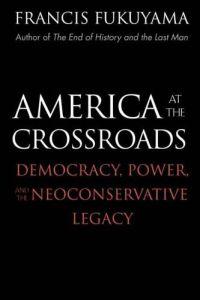

Purchase
Democracy, Power, and the Neoconservative Legacy
Yale University Press
February 2006
240 pages
ISBN: 0300113994
Hardcover
Add to Wish List
Non-Fiction Political
Francis Fukuyama’s criticism of the Iraq war put him at odds
with neoconservative friends both within and outside the
Bush administration. Here he explains how, in its decision
to invade Iraq, the Bush administration failed in its
stewardship of American foreign policy. First, the
administration wrongly made preventive war the central tenet
of its foreign policy. In addition, it badly misjudged the
global reaction to its exercise of “benevolent hegemony.”
And finally, it failed to appreciate the difficulties
involved in large-scale social engineering, grossly
underestimating the difficulties involved in establishing a
successful democratic government in Iraq. Fukuyama explores the contention by the Bush
administration’s critics that it had a neoconservative
agenda that dictated its foreign policy during the
president’s first term. Providing a fascinating history of
the varied strands of neoconservative thought since the
1930s, Fukuyama argues that the movement’s legacy is a
complex one that can be interpreted quite differently than
it was after the end of the Cold War. Analyzing the Bush
administration’s miscalculations in responding to the
post–September 11 challenge, Fukuyama proposes a new
approach to American foreign policy through which such
mistakes might be turned around—one in which the positive
aspects of the neoconservative legacy are joined with a more
realistic view of the way American power can be used around
the world.
Comments
No comments posted.
Registered users may leave comments.
Log in or register now!
| 


 © 2003-2024 off-the-edge.net
all rights reserved Privacy Policy
© 2003-2024 off-the-edge.net
all rights reserved Privacy Policy